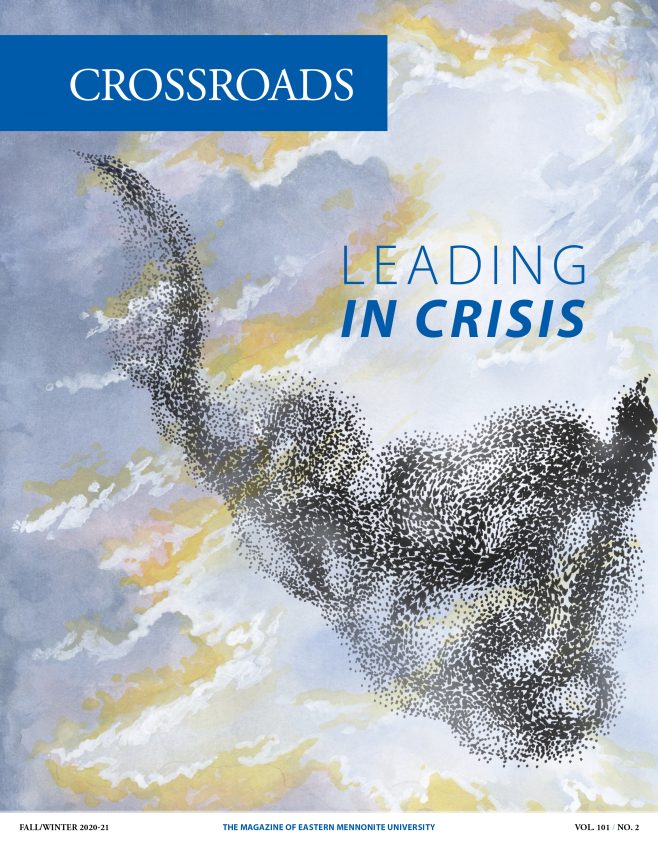
Photos: (left) Mennonite Library and Archives, Bethel College, North Newton, Kansas; (center) engraving by Jan Luiken in Martyrs Mirror, v. 2, p. 30 of Dutch edition, source: Rijksmuseum; (right) Virginia Mennonite Conference Archives.
From June 22-25, Eastern Mennonite University (EMU) hosts “Crossing the Line: Women of Anabaptist Traditions Encounter Borders and Boundaries,” a conference on the theme of women in the Anabaptist tradition who have crossed lines, borders and boundaries in contexts ranging from family structures to gender and race politics, leadership roles and migration.
Twenty-five concurrent sessions feature scholars and artists from around the United States and Canada, as well as India, Tanzania, Kenya, Zimbabwe, Germany, Mexico and Columbia.
Professor Mary Sprunger, chair of the history department, has provided leadership as well as Professor Kimberly Schmidt, history department faculty and director of the Washington Community Scholars’ Center in Washington D.C.
“I anticipate that the breadth of scholarship, artistic engagement, as well as ethnic, racial and gender identities of the presenters and artists will provide rich comparative, cross-disciplinary and crosscultural analyses,” says Schmidt.
Professor Hasia Diner will begin the conference with a keynote address on Jewish women in America.
Schmidt says this choice was purposeful. “Comparative studies enable us to engage in the broader scholarly world. This lecture forces us to think of Mennonite women’s history not as separate and apart from the history of women, but as part of it. Mennonite women, like Jewish women, are members of distinctive ethno-religious communities and one of the key questions we’re asking at this conference is how that specific identity informs women’s agency.”
Professor Sofia Samatar and veteran international aid administrator Cynthia Peacock provide plenary sessions. Two bus tours on the theme of Mennonite women in the Shenandoah Valley are also offered. Evening sessions offer a different experience in the arts: a visual gallery, poetry recitation and reading performance, and dance exhibition.
In addition to major sponsorships by Marpeck Foundation, Mennonite Quarterly Review, Just Pax Fund, The Bill and Melinda Gates Foundation, and the Virginia Foundation for the Humanities, the conference is also funded by individuals honoring special women in their lives, including pastors, professors and family members.
The conference builds on a 21-year-old legacy of a groundbreaking conference on women of Anabaptist traditions in history at Millersville University (Pa.) in 1995. That conference was titled “The Quiet in the Land? Women of Anabaptist Traditions in Historical Perspective.”
